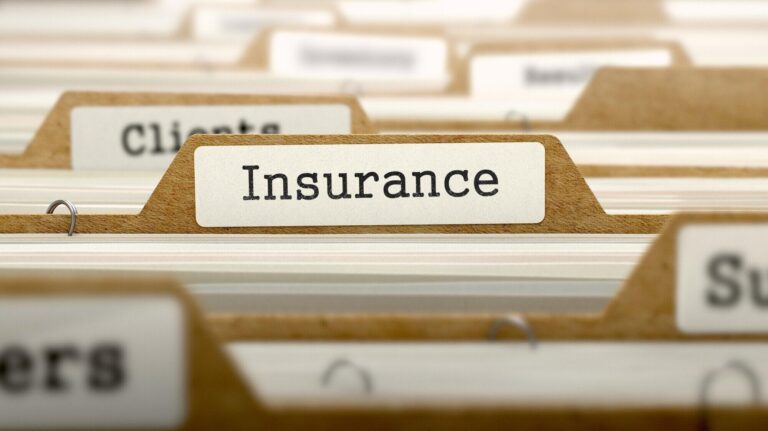Common Mistakes to Avoid When Choosing Helicopter Insurance
Helicopter insurance is a specialized form of coverage that requires careful consideration to ensure adequate protection. Making the wrong choices can lead to significant financial consequences in the event of an accident or loss. To avoid these pitfalls, it’s crucial to understand the common mistakes people often make when selecting helicopter insurance.
Underestimating the Importance of Adequate Coverage
One of the most common errors is underestimating the level of coverage needed. Many helicopter owners may opt for the cheapest policy available without fully understanding the potential risks and financial liabilities involved. It’s essential to assess factors such as the helicopter’s value, the intended use, and the pilot’s experience to determine the appropriate level of coverage.
For example, a helicopter used for commercial purposes requires more extensive coverage than one used solely for recreational flying. Additionally, a helicopter with a high value or a pilot with limited experience may necessitate increased coverage to protect against potential losses.
Failing to Understand Policy Exclusions
Helicopter insurance policies often contain exclusions that limit coverage in certain situations. Failing to understand these exclusions can lead to significant financial losses. Common exclusions may include:
- Acts of war or terrorism
- Flying under the influence of drugs or alcohol
- Flying outside authorized airspace
- Flying without a valid license or medical certificate
- Certain types of accidents, such as those resulting from pilot error
It’s crucial to carefully review the policy terms and conditions to identify any exclusions that may affect your coverage.
For instance, if you plan to fly your helicopter outside of the United States, you may need to purchase additional coverage to ensure that you are protected in case of an accident. Similarly, if you frequently fly in mountainous terrain or in areas with challenging weather conditions, you may need to increase your coverage to account for the increased risk.
Neglecting to Consider Liability Coverage
Liability coverage is essential to protect you from third-party claims arising from accidents. If you are involved in an accident that causes property damage or bodily injury to others, liability coverage can help cover the costs of legal defense and settlements. It’s important to ensure that your policy provides adequate liability coverage to protect your assets.
The amount of liability coverage you need will depend on various factors, including the value of your helicopter, the type of flying you do, and the potential risks associated with your operations. For example, if you frequently fly in densely populated areas or near airports, you may need higher liability coverage to protect yourself from potential claims.
Overlooking the Importance of Hull Insurance
Hull insurance covers the cost of repairing or replacing your helicopter in the event of an accident. This is crucial to protect your investment and avoid significant financial losses. When selecting hull insurance, consider factors such as the helicopter’s value, the pilot’s experience, and the intended use.
Hull insurance can be a complex component of helicopter insurance, and it’s important to understand the different types of coverage available. For example, some policies offer agreed value coverage, which pays a predetermined amount in the event of a total loss, regardless of the actual market value of the helicopter. Other policies may offer actual cash value coverage, which pays the fair market value of the helicopter at the time of the loss.
Choosing an Insurer Based Solely on Price
While price is an important factor to consider, it should not be the sole determining factor when choosing helicopter insurance. It’s essential to compare policies from different insurers based on a variety of factors, including coverage limits, exclusions, deductibles, and customer service.
A lower premium may not always be worth it if the policy offers inadequate coverage or poor customer service. It’s important to consider the overall value of the policy, including the potential benefits and drawbacks.
Failing to Update Your Policy Regularly
As your circumstances change, it’s important to review and update your helicopter insurance policy accordingly. For example, if you purchase a new helicopter, increase your flying hours, or change the intended use of your aircraft, you may need to adjust your coverage.
Regularly reviewing your policy can help ensure that you have the appropriate coverage in place to protect your assets. For example, if you start flying in more challenging conditions or increase the number of hours you fly per year, you may need to increase your coverage limits.
Not Seeking Professional Advice
Helicopter insurance can be complex, and it’s often advisable to seek professional advice from an experienced insurance agent or broker. A qualified agent can help you understand the different types of coverage available, identify potential risks, and select the most suitable policy for your needs.
An insurance agent can also help you negotiate with insurers to get the best possible rates and coverage. By working with a knowledgeable agent, you can avoid common mistakes and ensure that your helicopter is adequately protected.
By avoiding these common mistakes and taking the time to carefully evaluate your insurance options, you can ensure that your helicopter is adequately protected and that you are prepared for any unforeseen circumstances.
Final Thoughts
In helicopter ownership, insurance is a crucial component of risk management. By understanding the common mistakes people often make when selecting helicopter insurance, you can avoid costly errors and ensure that your investment is adequately protected.
By taking these steps, you can make informed decisions about your helicopter insurance and protect yourself from potential financial losses. Remember, investing in the right insurance is not just a requirement; it’s a wise business decision that can provide peace of mind and safeguard your assets.







